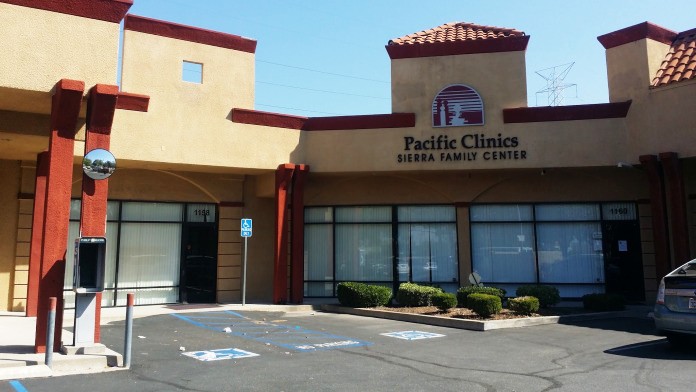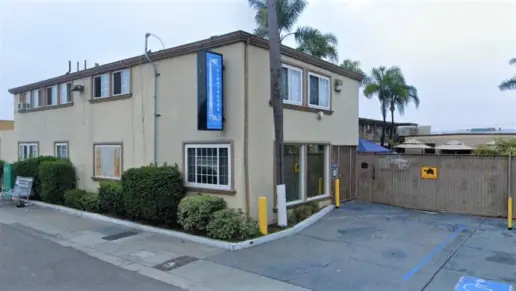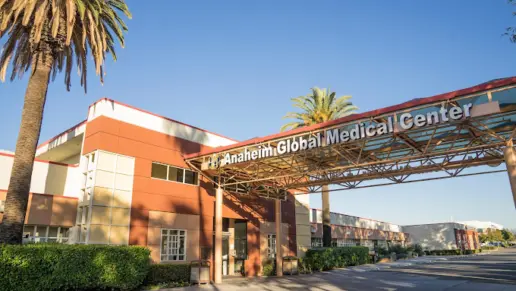About Pacific Clinics – Sierra Family Center
Pacific Clinics - Sierra Family Center in Glendora, California, offers comprehensive mental healthcare, including substance use disorder (SUD) treatment, for children, youth adults and families. With its peaceful setting at the foot of the San Gabriel Mountains and the energy from Citrus College and Azusa Pacific University, Glendora offers a supportive environment for recovery. While the treatment at the Glendora clinic is offered on an outpatient basis, they can refer clients to residential or inpatient treatment programs when a client needs more intensive help.
Pacific Clinics has been helping people in California since 1867. They started as orphanages in San Jose. Today, the help they offer goes beyond mental healthcare to include housing assistance, foster care, social services and early childhood and adult education. Known for innovative care, they introduced the wraparound philosophy, focusing on family driven, child centered mental health services.
Many staff members have personal recovery experience. Recovery often feels less overwhelming when you have people helping you who understand addiction. They offer culturally sensitive care in over 20 languages and ensure everyone has access to services, with many offered at no cost or on a sliding scale.
So, what can you expect when you enroll in their SUD program? First, your treatment plan will depend on your needs. It may include individual, group or family therapy. They use proven treatment methods like cognitive behavioral therapy (CBT), motivational enhancement therapy (MET) and mindfulness strategies.
CBT helps you change negative thoughts, while MET boosts your motivation to break harmful habits. Meditation teaches you ways to manage stress and cravings. Together, they set you up for lasting recovery. And because substance use often connects to issues like depression or past trauma, the staff is here to help you work through any co-occurring mental health issues.
Pacific Clinics makes treating substance use disorders simpler, which helps remove the confusion and stress that often come with looking for help. The process of getting treatment can feel overwhelming, but Pacific Clinics offers a clear, straightforward path to recovery. They aim to help people understand addiction, and their programs are designed to help prevent relapse.
Latest Reviews
Rehab Score
Gallery

Location
Other Forms of Payment
Medicaid is a state based program that helps lower-income individuals and families pay for healthcare. Medicaid covers addiction treatment so those enrolled can use their coverage to pay for rehab. When a program accepts Medicaid the client often pays very little or nothing out of their own pocket.
Medicare is a federal program that provides health insurance for those 65 and older. It also serves people under 65 with chronic and disabling health challenges. To use Medicare for addiction treatment you need to find a program that accepts Medicare and is in network with your plan. Out of pocket costs and preauthorization requirements vary, so always check with your provider.
Addiction Treatments
Levels of Care
Treatments
The goal of treatment for alcoholism is abstinence. Those with poor social support, poor motivation, or psychiatric disorders tend to relapse within a few years of treatment. For these people, success is measured by longer periods of abstinence, reduced use of alcohol, better health, and improved social functioning. Recovery and Maintenance are usually based on 12 step programs and AA meetings.
Drug rehab in California teaches participants constructive ways to stay clean and sober. Treatment revolves around helping individuals stop using the substance they are addicted to and learn healthy habits to avoid relapse.
Many of those suffering from addiction also suffer from mental or emotional illnesses like schizophrenia, bipolar disorder, depression, or anxiety disorders. Rehab and other substance abuse facilities treating those with a dual diagnosis or co-occurring disorder administer psychiatric treatment to address the person's mental health issue in addition to drug and alcohol rehabilitation.
A combined mental health and substance abuse rehab has the staff and resources available to handle individuals with both mental health and substance abuse issues. It can be challenging to determine where a specific symptom stems from (a mental health issue or an issue related to substance abuse), so mental health and substance abuse professionals are helpful in detangling symptoms and keeping treatment on track.
Opioid rehabs specialize in supporting those recovering from opioid addiction. They treat those suffering from addiction to illegal opioids like heroin, as well as prescription drugs like oxycodone. These centers typically combine both physical as well as mental and emotional support to help stop addiction. Physical support often includes medical detox and subsequent medical support (including medication), and mental support includes in-depth therapy to address the underlying causes of addiction.
Programs

Clinical Services
Research clearly demonstrates that recovery is far more successful and sustainable when loved ones like family members participate in rehab and substance abuse treatment. Genetic factors may be at play when it comes to drug and alcohol addiction, as well as mental health issues. Family dynamics often play a critical role in addiction triggers, and if properly educated, family members can be a strong source of support when it comes to rehabilitation.
Group therapy is any therapeutic work that happens in a group (not one-on-one). There are a number of different group therapy modalities, including support groups, experiential therapy, psycho-education, and more. Group therapy involves treatment as well as processing interaction between group members.
Trauma therapy addresses traumatic incidents from a client's past that are likely affecting their present-day experience. Trauma is often one of the primary triggers and potential causes of addiction, and can stem from child sexual abuse, domestic violence, having a parent with a mental illness, losing one or both parents at a young age, teenage or adult sexual assault, or any number of other factors. The purpose of trauma therapy is to allow a patient to process trauma and move through and past it, with the help of trained and compassionate mental health professionals.
Amenities
-
Private Setting
Contact Information
1160 South Grand Avenue
Glendora, CA 91740


